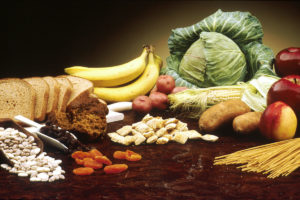 Have you wondered whether a totally vegan diet for young children is healthy? Are they missing nutrients? A study from Finland attempted to answer this question by comparing young children eating vegan diets with those eating vegetarian and omnivore (both meat and plants) diets. A vegan diet contains no animal products, including eggs and dairy.
Have you wondered whether a totally vegan diet for young children is healthy? Are they missing nutrients? A study from Finland attempted to answer this question by comparing young children eating vegan diets with those eating vegetarian and omnivore (both meat and plants) diets. A vegan diet contains no animal products, including eggs and dairy.
The researchers studied 40 healthy Finnish children, average age 3 1/2 years. They found that a vegan diet, even with recommended levels of supplementation (vitamin B12, iodine, vitamin D), resulted in significant effects on the children's metabolism and lower levels of certain nutrients, such as Vitamin A, vitamin D, and retinol-binding proteins (RBP). The vegan children also had a lower protein intake and lower levels of essential amino acids.
A vegan diet is practically devoid of cholesterol, EPA, and DHA, and so the children had significantly lower total cholesterol, HDL, LDL, and DHA (docosahexanoic acid) levels. DHA is a fatty acid needed for development of visual function. The researchers were concerned about the visual health of the vegan children due to the combination of low vitamin A and DHA levels. On the other hand, folate levels were high in the vegan children.
It is interesting that these differences occurred, even though all the children received nutritionist planned daily meals at high quality day care. The intake of vitamins D and A were the same in the different groups. All vegan children had followed a vegan diet since birth and were breastfed for 13–50 months by vegan mothers.
The researchers said that while a vegan diet is generally viewed as having health benefits in adulthood, they have concerns with a vegan diet for young developing children. The vegan children had low cholesterol levels, but the researchers said cholesterol is "essential for cellular growth, division, and development of physiological systems due to its major role in the synthesis of cell membranes, steroid hormones, bile acids, and brain myelin".
We currently don't know long-term health effects (whether good or bad) of a strict vegan diet from birth. Studies are needed! But we do know that young developing children need cholesterol. Another very important nutrient that may be lacking in vegan diets is choline, which is critical for brain health - a good source is eggs.
From Science Daily: Vegan diet significantly remodels metabolism in young children
The study concludes that vegan diet has a broad effect on children's metabolism. Serum biomarker levels for vitamins A and D, cholesterol forms and essential amino acids were significantly lower in children on vegan diet compared to age-adjusted omnivores. In addition, docosahexaenoic acid is absent from vegan diet. The results were recently published in a high-profile international scientific journal EMBO Molecular Medicine.
... The motives behind choosing a vegan lifestyle are ecological, ethical and health-related: vegan diets exclude all animal-based products. It is recommended that full vegan diet is always supplemented with vitamin B12, vitamin D and iodine, and based on individual assessment the supplementation for calcium, vitamin B2, iron and zinc may be needed.
Except for vitamin D, the study did not find differences between diet groups in the levels of these nutrients in young children. All of the participated vegan children used regular vitamin B12, and all but one used regular vitamin D and iodine supplementation, indicating that Finnish vegan families are well familiar with the previously known nutritional requirements of vegan diets. However, current nutritional recommendations are based on studies conducted on adult vegans, and previous studies on metabolic effects of vegan diets in children do not exist.
In their recently published article Topi Hovinen, MD, and Liisa Korkalo, PhD, together with the multidisciplinary team led by academy professor Anu Suomalainen-Wartiovaara and docent Maijaliisa Erkkola studied comprehensively the nutrition and metabolism of 40 healthy children in daycares of Helsinki. The children were following a vegan, vegetarian or omnivore diet according to the choice of their families. Their nutritional intake, metabolic biomarkers and micronutrient statuses were extensively studied.
The children on a fully vegan diet were found to have significantly lower vitamin D levels compared to children without a special diet despite having regular vitamin D supplementation and blood samples being collected in late summer. Surprisingly, also their vitamin A status was lowered. Levels for LDL and HDL cholesterol, essential amino acid and docosahexaenoic acid, a fatty acid with a central role in development of visual function, were low while folate levels were remarkably high in vegan children.
